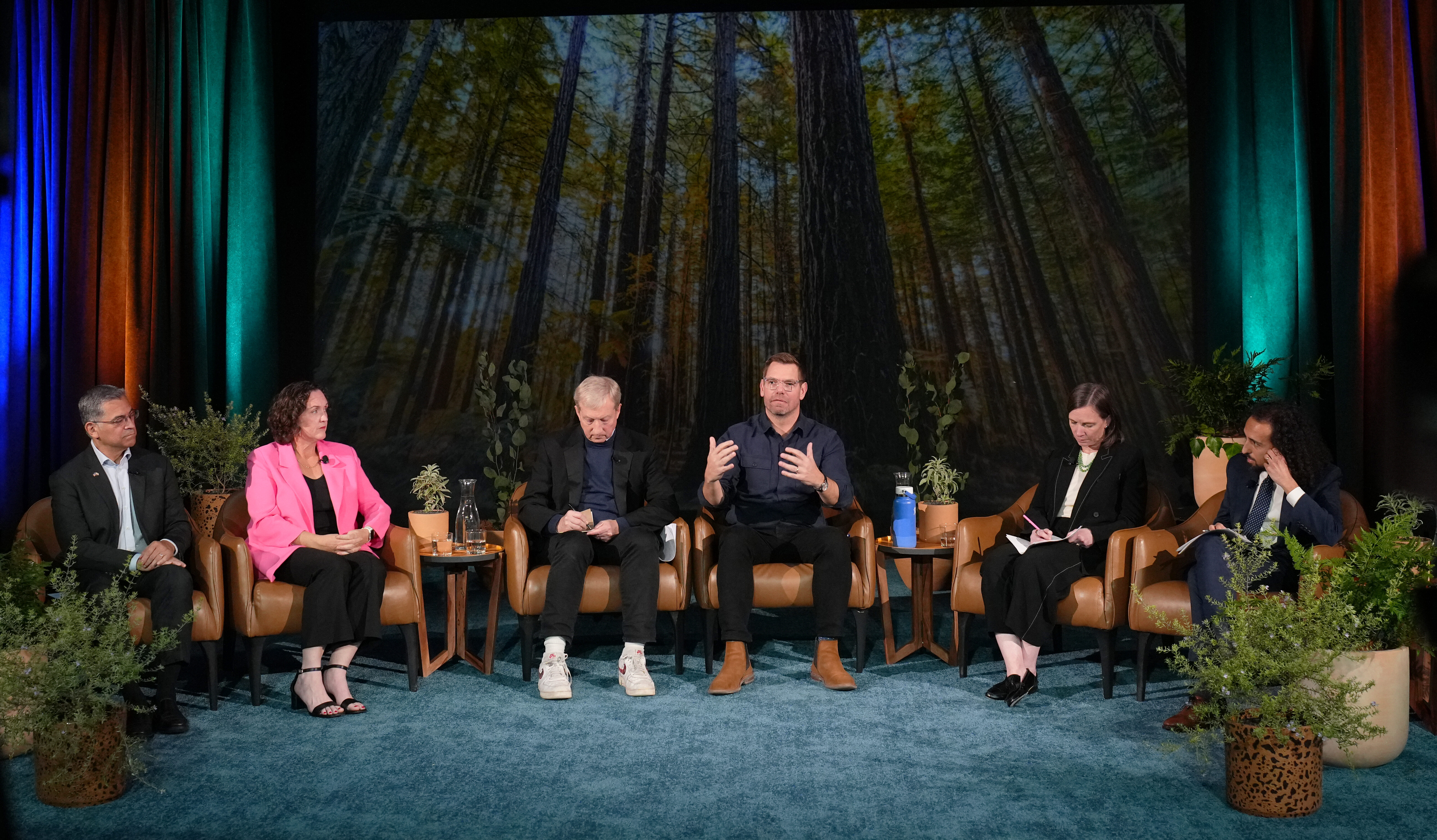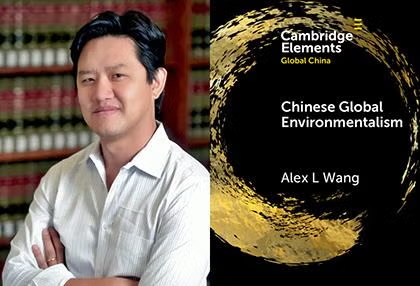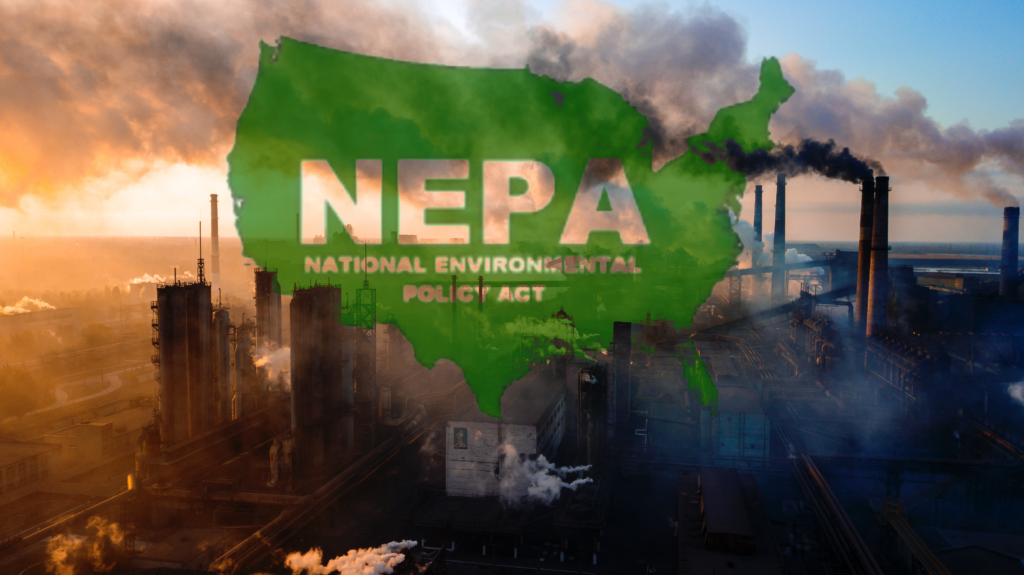Environmental Justice
Recapping “Our Climate Future”: A California Gubernatorial Candidate Forum
How four top candidates plan to tackle affordability, environmental justice, and clean energy and continue California’s leadership
Californians will elect a new governor in November. The race presents state voters with a wider variety of potential outcomes for climate policy–from increased ambition to continuity to changed priorities–than any election since 2010. To help voters understand where the candidates stand on our most pressing environmental challenges, the Center for Law, Energy, and the …
Continue reading “Recapping “Our Climate Future”: A California Gubernatorial Candidate Forum”
CONTINUE READINGIs China a Climate Hero? It’s complicated
UCLA’s Alex Wang explains China’s climate strategies and contradictions in his new book, Chinese Global Environmentalism.
Though China was once viewed as a climate villain, the country now dominates the global supply chains of solar panels, batteries, and electric vehicles. Just this month, Chinese manufacturer BYD overtook Tesla as the world’s biggest maker of EVs. It’s the latest example of how China’s focus on clean technology is setting the pace for …
Continue reading “Is China a Climate Hero? It’s complicated”
CONTINUE READINGNightmare on Penn Ave (Part 2)
After a year of Trump 2.0, here’s how things stand.
Eight years ago almost to the day, I wrote a post titled, “One Year and Counting.” I was writing at the end of Trump’s first year in office. And here we are again, one year into a second Trump Administration. Trump’s basically deregulatory strategy has remained largely unchanged. But there are some notable differences in the situations then and now. I closed my 2017 post with this: “One characteristic of the Trump Administration is a ceaseless stream of controversies and dramas. But generally speaking, the amount of actual legal change has been much more limited, because the system is designed to provide checks on administrative and legislative action.” It remains to be seen how well those checks will function this time around.
CONTINUE READINGFrom Sivuqaq’s Shores in Alaska to the UN: The Fight for Military Cleanup & Indigenous Rights
Per- and polyfluoroalkyl substances (PFAS), also known as ‘forever chemicals’ are intoxicating the Sivuqaq people
“It was so beautiful. Little did we know it was so toxic”, declared Karen (Pungowiyi) Nguyen, a former Indigenous resident of Sivuqaq Island (more commonly known as St. Lawrence Island) in the Northern Bering Sea, when we interviewed her in Alaska in early 2024. She recalled how, as children at the Northeast Cape on Sivuqaq, …
CONTINUE READINGNEPA and Democracy
The Trump Administration is at war with transparency and public input.
The Administration is out to limit public oversight of government actions that, taken alone or as a group, will have major environmental impacts – notably, oil production, coal mining, nuclear reactors, and pipelines. Congress will also have less visibility into these important decisions. People are often impatient about procedures that slow decision making, sometimes properly so. But the solution is not a secretive decision-making process. If it’s true that democracy dies in darkness, it’s also true that ugly things rawl out of the woodwork when the lights are off.
CONTINUE READINGWhat the Hell Happened To The Sierra Club?
Its recent implosion over left-wing politics shows a trend that threatens environmental advocacy.
In an era of growing American fascism, for progressive organizations, there are successful strategies, and unsuccessful strategies. And then there is the Sierra Club, which appears to have destroyed itself, according to a depressing and enraging expose in the New York Times (co-written by David Fahrenthold, one of their best reporters): “Sierra Club is in …
Continue reading “What the Hell Happened To The Sierra Club?”
CONTINUE READINGAmerica’s Dirty Pictures: The Forgotten ‘Documerica’ Reminds Us How Far We’ve Come
The Documerica project, housed at the National Archives, provides a vivid window into environmental destruction circa the 1970s.
In recent decades, environmental laws have not only been challenged in courts and Congress; they’ve also taken a verbal beating. They’ve been denounced as “job killers”, “government overreach,” “radical environmentalism,” a “war on coal,” and, lately, just “woke.” It’s become all too easy to focus on the costs of regulation and forget why we adopted …
CONTINUE READINGGood COP, Bad COP in Belém, Brazil
The Drain is a weekly roundup of environmental and climate news from Legal Planet.
The United Nations mega-conference focused on climate change known as COP (“Conference of the Parties”) is well underway in Belém, Brazil with 193 countries plus the EU, 57 heads of state, 39 ministers and hundreds of governors, mayors, and local officials participating. Two of my UCLA Law colleagues are on the ground in Belém this …
Continue reading “Good COP, Bad COP in Belém, Brazil “
CONTINUE READINGManila Protests Over Environment Follow a Rich Tradition
Happy Filipino American History Month. Here’s a look at Filipino-led protests for environmental justice.
The Philippines made international news last month when several tens of thousands of protestors took over the streets of Manila to express their outrage over the government’s embezzlement of over a trillion Philippine pesos (approximately $17.6 billion USD) designated for flood control projects. Losing this amount of climate-designated funds to corruption would be problematic anywhere …
Continue reading “Manila Protests Over Environment Follow a Rich Tradition”
CONTINUE READINGLighting Candles in Dark Times: Environmental Law Centers in the Trump Era
These law school centers show it’s possible find ways to make a difference.
Environmental law have become vibrant parts of the law and policy ecosystem. At a time when despondency seems all too common, the work of these law school centers offers beacons of hope for the future of environmental protection. Some of that work is playing defense — pushing back against deregulatory efforts — while other work plays offense by identifying innovative directions for environmental policy. A comprehensive survey isn’t practical, but I’ll provide examples from several different centers.
CONTINUE READING












